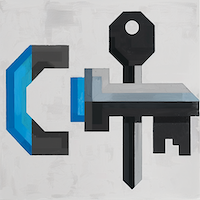
Deploying RabbitMQ on Docker and Kubernetes is essential for modern applications, providing scalable messaging solutions.Those deployments are, in fact, standards in today’s production environments.
Deploying RabbitMQ with Docker
Docker, a leading containerization platform, simplifies the deployment of applications like the RabbitMQ server by encapsulating them in containers.
This approach streamlines dependencies and ensures consistency across different environments.
Deploying the RabbitMQ server using Docker centers around two main steps: acquiring the RabbitMQ Docker image from Docker Hub and initializing the RabbitMQ Docker container.
Advantages of Using Docker for RabbitMQ
Simplicity and Isolation: The availability of the official RabbitMQ Docker image on Docker Hub and Docker’s straightforward syntax facilitate a quick and isolated setup, ensuring environment consistency across deployments.
Disadvantages of Using Docker for RabbitMQ
Scalability Challenges: While Docker excels in isolating and deploying individual RabbitMQ containers, scaling the RabbitMQ server across multiple Docker containers can be complex without leveraging additional orchestration tools.
RabbitMQ Setup Service: Professional Consulting and Support
Scaling with Docker Compose for RabbitMQ
For more intricate setups requiring multiple containers, Docker Compose enables developers to define and run multi-container Docker applications, including the RabbitMQ server, thereby simplifying the management of interconnected containers.
Deploying RabbitMQ on Kubernetes
Kubernetes offers an advanced platform for automating deployment, scaling, and operations of containerized applications like the RabbitMQ server.
Deploying the RabbitMQ server on Kubernetes typically involves using the RabbitMQ Kubernetes Operator and the RabbitMQ Helm chart for a streamlined and configurable setup.
Advantages of Using Kubernetes for RabbitMQ
Enhanced Scalability and High Availability: Kubernetes is renowned for its ability to effortlessly scale applications and maintain high availability of RabbitMQ instances, ensuring robust messaging capabilities.
Disadvantages of Using Kubernetes for RabbitMQ
Increased Complexity and Resource Overhead: The steep learning curve associated with Kubernetes and the additional resources required for its operation can pose challenges for some organizations.
Security Considerations for RabbitMQ Deployments in Docker and Kubernetes
Securing RabbitMQ deployments in Docker and Kubernetes is critical for protecting sensitive data and ensuring the integrity of the messaging system.
Key security measures include:
Implementing Network Policies
In Kubernetes, network policies control the traffic flow between pods, ensuring that only authorized services can communicate with RabbitMQ instances.
Managing Access Controls
Leverage RabbitMQ’s built-in access control mechanisms alongside Kubernetes Secrets or Docker Secrets to securely manage user permissions, roles, and sensitive credentials.
Enabling Secure Communication
Activate TLS/SSL for RabbitMQ connections to encrypt data in transit, safeguarding sensitive information as it moves between services and the RabbitMQ server.
Prudent Configuration Management
Securely manage RabbitMQ configurations to prevent exposing sensitive information or vulnerabilities, especially when deploying with Docker Compose or Kubernetes manifests.
Robust Monitoring and Logging
Implement comprehensive monitoring and logging strategies to promptly detect and respond to security incidents, leveraging tools and integrations available within Kubernetes and Docker ecosystems.
Ensuring Regular Updates
Keep the RabbitMQ server, Docker, and Kubernetes components updated with the latest security patches to protect against known vulnerabilities and threats.

Deploying the RabbitMQ server using Docker and Kubernetes not only streamlines development workflows but also supports scalable, resilient, and maintainable production environments.
By meticulously implementing the outlined security considerations, developers can ensure their RabbitMQ deployments are secure, reliable, and poised to meet the demands of modern, distributed applications.
Our offer
Free Project Architecture Audit
This session lasts 2 hours and is held in small groups.
Agile Fixed Price Contract
Suitable for new development and legacy modernization projects.
We are committing to deliver the agreed-upon functionality within a budget and offer a warranty on the outcomes.
Hourly rate / „Time and Materials“
Suitable for consulting, technical supervision and smaller development projects.

Argo CD: Kubernetes GitOps
Argo CD has become a crucial tool in the Kubernetes world, praised for its effective use of GitOps principles.
GitOps, which centralizes deployment configurations in Git repositories, empowers DevOps teams by automating and streamlining workflows.

High Availability Keycloak Cluster
Setting up a Keycloak HA cluster using Kubernetes significantly enhances the reliability and scalability of your identity and access management system.
High availability is essential because it prevents service interruptions that can lead to user dissatisfaction and potential revenue loss. In identity management, downtime can prevent users from accessing critical services, making HA even more crucial.

RabbitMQ Applications: Spring Boot (Java)
Integrating RabbitMQ with Spring Boot significantly enhances Java application scalability, offering developers a robust framework for efficient message handling and microservices architecture.

RabbitMQ Clusters
RabbitMQ clusters are pivotal in creating scalable, reliable, and highly available messaging systems. This advanced message broker facilitates seamless asynchronous communication across different parts of applications, ensuring efficient message processing and delivery.

RabbitMQ Consulting
Scalability is an essential attribute for the complex distributed systems of today.
The Advanced Message Queuing Protocol (AMQP) and RabbitMQ, a widely-used open-source AMQP implementation, provide essential tools for creating such robust, scalable systems.